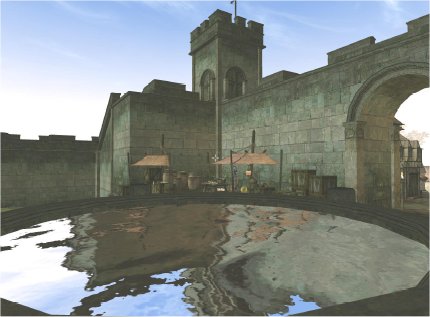 |
|
|
|
In the Forums... |

Posted: November 18th, 2002
One of the most significant changes to the GPU is the addition of full 16- and 32-bit floating point precision (FP16, and FP32) through the entire pipeline. Simply put, this gives developers the ability to create the same quality graphics and images as those used in film. To do this you need to be able to store and process pixels in 128-bit mode. FP16 allows the developer to add some performance, without a significant drop in detail. The GeForce FX platform also allows developers the ability to switch from FP16 to FP32 when they need to, for example when a texture is larger than 1024x1024. This new precision also effects what you see, as the gamer. Developers can now add more realistic bump mapping, and have a lot more control of color levels, which will add to the realism of a scene. This also allows developers to add more special effects without having to 'hack' certain functions. A problem developers encounter is called "over-flow", and "under-flow". These terms relate to having to calculate pixels with a calculation. The rippling water image below is a perfect example of an effect that is hampered by this problem. If you have too little precision, the water thrashes about, or stops completely, because errors occur when the calculation loses data, and returns incorrect values.

The image above is an example of the type of rendering FP16 and FP32 can enhance and improve. This type of rendering is extremely complex, and due to the need for more bit space, or the amount of bits allowed to be used for precision, scenes like this can be built with less effort and more accuracy. Rippling effects will be stunningly more realistic with this technology.

Lack of precision also affects bump mapping. The image above is an example of what can happen when too little precision is used (left) and what it is supposed to look like (right). You can clearly see the artifacting on the tip of the shoe, and in the pant leg. The difference has nothing to do with anything other than the lack of precision. Nvidia claims the GeForce FX will eliminate this.
|
||
|
| |||
|---|---|---|---|